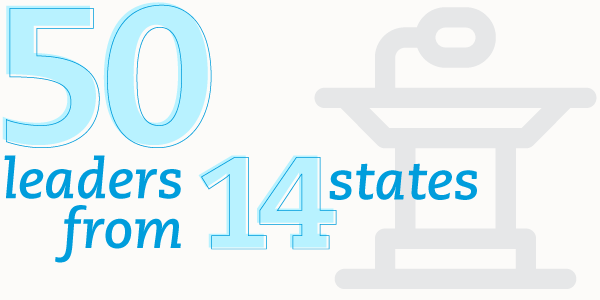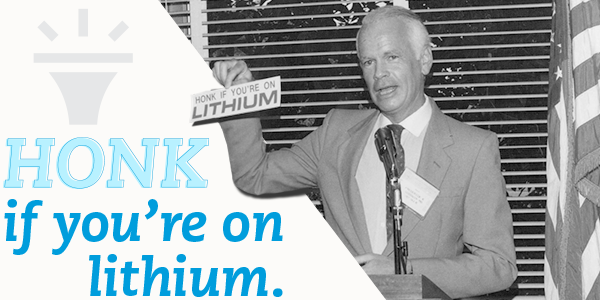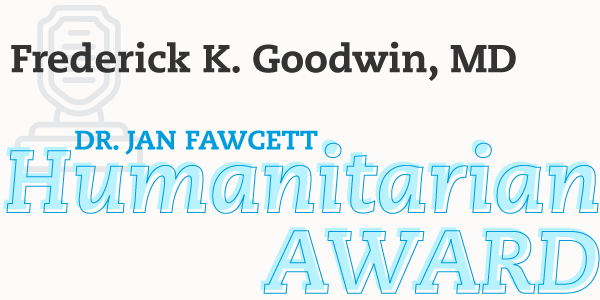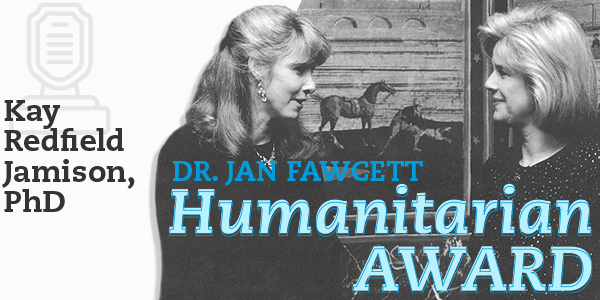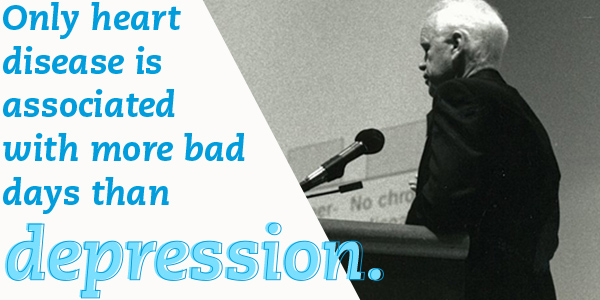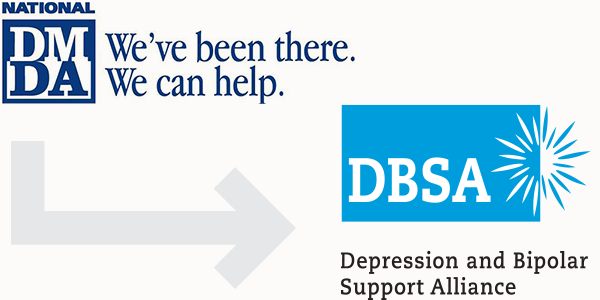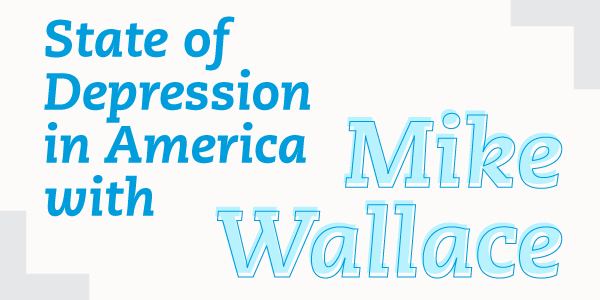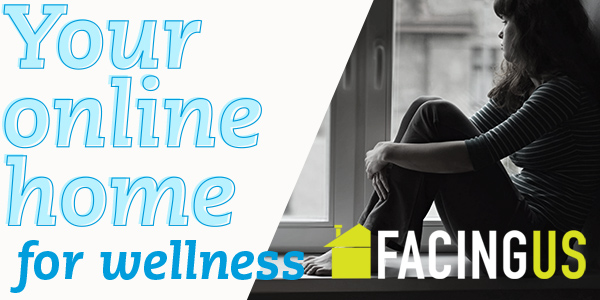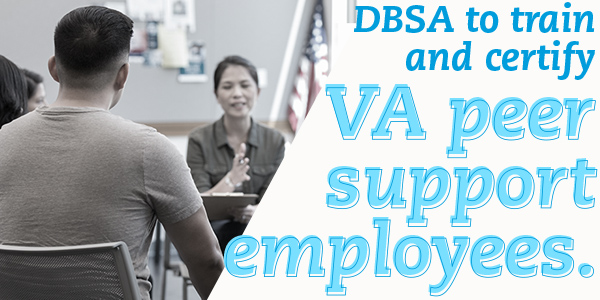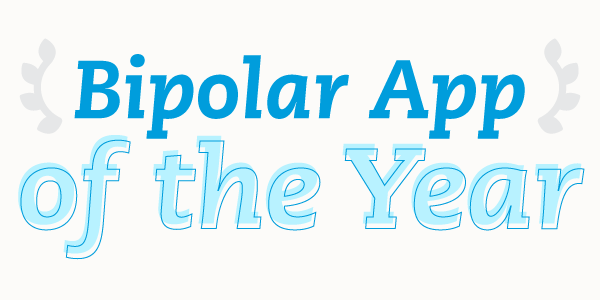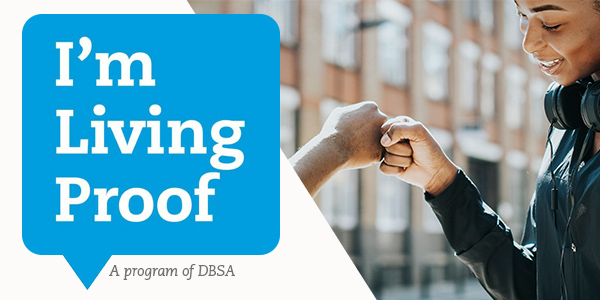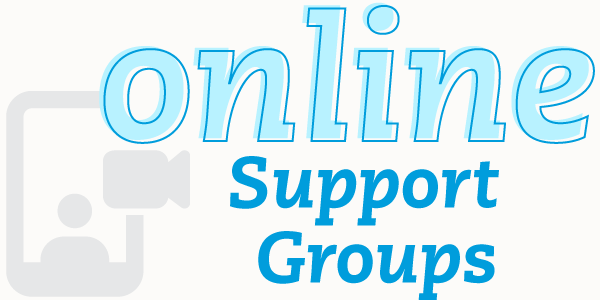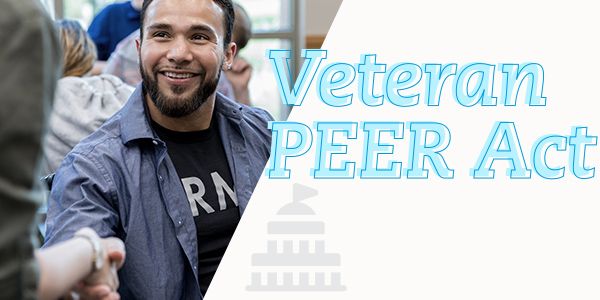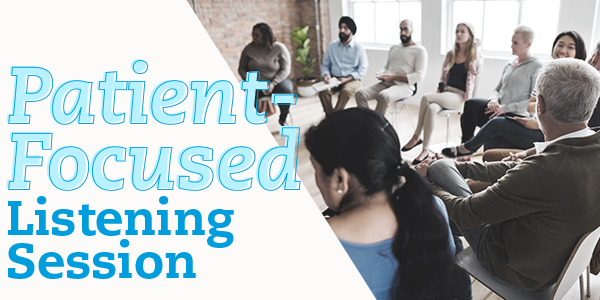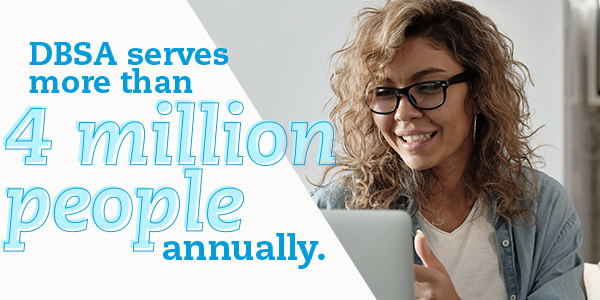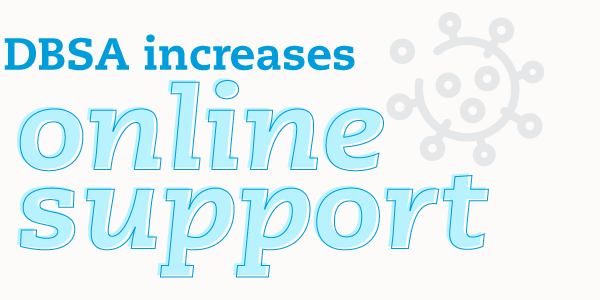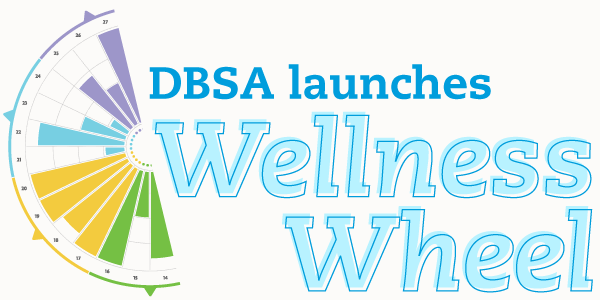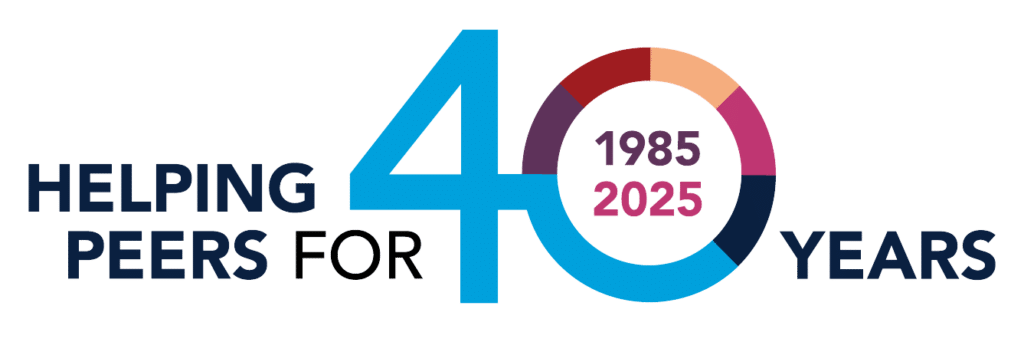From a gathering of 6 friends in a suburban Chicago home to a thriving organization serving 4 million people annually, DBSA has seen tremendous growth in its first 35 years. Here are the milestones that reveal where we’ve been — and set the stage for where we’re headed in the decades ahead.

Celebrating NDMDA
A congressional reception hosted by House Speaker Tip O’Neill with Senators Pete V. Domenici, Orrin Hatch, Daniel K. Inouye, Paul Simon, and U.S. Representative Silvio O. Conte celebrates the establishment of the National Depression and Manic Depression Association (NDMDA), formerly MDA. Katherine Graham, publisher of the Washington Post, who years earlier had lost her husband, Phil, to suicide, is the guest speaker. NDMDA uses the slogan “Honk if you’re on lithium” for its new promotional materials.
Frederick K. Goodwin, MD Receives Dr. Jan Fawcett Humanitarian Award
Frederick K. Goodwin, MD, receives NDMDA’s Dr. Jan Fawcett Humanitarian Award at a gala benefit at the National Building Museum in Washington, D.C. CBS News correspondent Mike Wallace serves as emcee of the event. The award is named for psychiatrist, educator and author Jan Fawcett, MD, who provided care for Rose Kurland and became her partner in creating a new organization focused on the needs of people with bipolar disorder.
Balanced Mind Foundation
Balanced Mind Foundation, serving and representing youth and parents with mood disorders, was founded with early development support from DBSA
SAMHSA Grant Supports Peer Specialist Training Pilot
DBSA receives a SAMHSA grant to develop and test a model peer specialist training program.
Exploring the Role of Peer Specialists in VA Treatment Plans
DBSA meets with two Veterans Administration committees to discuss the integration of certified peer specialists into VA treatment plans.
Mike Wallace Addresses Depression in America
DBSA produces The State of Depression in America, an award-winning report hosted by CBS News correspondent Mike Wallace. Wallace’s first major bout of depression was triggered in 1984, after U.S. Army General William C. Westmoreland sued Wallace and several others for libel. Westmoreland was featured in the 1982 CBS documentary, The Uncounted Enemy: A Vietnam Deception, for which Wallace served as chief correspondent. Wallace’s courage in sharing his experiences with depression was lauded by peers and mental health experts alike.
DBSA Testifies Before Congress
DBSA briefs members of the U.S. Congress on the value of peer support services for military personnel returning home from active duty.
DBSA Launches New Wellness Tracker
DBSA unveils the DBSA Wellness Tracker, giving peers a practical tool to record daily mood, medication, diet and lifestyle information to support their recovery and wellbeing. Though the app is no longer available, people can download the pdf.
DBSA Advances Depression and Bipolar Research
DBSA partners with the University of Michigan Depression Center to begin developing a consumer clearinghouse for depression and bipolar research, helping investigators connect with individuals who may be eligible to take part in groundbreaking studies.
Building Strategic Partnerships in the Pharmaceutical Industry
Launched DBSA’s Industry Advisory Board, a membership-based network of executives from within the pharmaceutical industry.
Balanced Mind Foundation Joins DBSA to Support Youth and Families
Balanced Mind Foundation merges with DBSA for an integrated approach to supporting children living with mood disorders and their parents
DBSA Young Adult Council Founded
DBSA creates the Young Adult Council to address the unique needs of individuals aged 18 to 30 who live with mood disorders.
DBSA Hosts Congressional Briefings on Peer Support
In the first-ever congressional briefing initiated entirely by people living with mood disorders, DBSA meets with members of the U.S. Congress to share key findings on the value of peer support. The briefing is also the first session of its kind that focuses fully on peer support as a vital resource for recovery and long-term wellness.
I’m Living Proof Launches
DBSA creates I’m Living Proof, a collection of inspiring stories from adults who’ve found their way to wellness, created for tweens and teens experiencing early signs of mood disorders.
DBSA Fights Discrimination with Compassionate Language Guide
DBSA seeks to end stigma and misunderstanding by publishing 10 Ways to Combat Discrimination with Compassionate Language, a free guide for clinicians, employers, families, friends, public officials, and the media.
First Patient Engagement and Stakeholder Workshop
DBSA organizes its first Patient Engagement and Stakeholder Workshop, bringing together peers and family members with FDA staff, medical product developers, and clinicians to discuss ways to bring peer-preferred treatment outcomes into the clinical trial process.
DBSA Conducts In-Depth Wellness Survey
With guidance from a specially organized Peer Council, DBSA conducts an in-depth wellness survey. More than 6,400 responses reveal what treatment outcomes matter most to people living with mood disorders.
New DBSA Website Launches
DBSA unveils an all-new website, reflecting our new strategic vision, values, and core beliefs. Thanks to growing web, email, and social media traffic combined with local outreach, DBSA serves more than 4 million people annually.
DBSA Certified Peer Support Specialist Course Redeveloped
DBSA updates and improves its Certified Peer Support Specialist Course, offering quality education for those who seek to join the growing peer workforce.
DBSA Launches Wellness Wheel
Adapting a widely used concept in mental health, DBSA launches its own Wellness Wheel, helping people with mood disorders create a holistic picture of their strengths and needs in 7 key areas.
DBSA Begins Multi-Year Veteran Strength Peer Program
DBSA launches the first stage of what becomes the four-year Peer Apprenticeship Program called Veteran Strength
DBSA Secures VHA Peer Training Contract
DBSA secures a five-year contract to train peer specialists for the Veterans Health Administration.
DBSA Approved to Train California Peer Specialists
DBSA becomes an approved training provider by the California Mental Health Services Authority (CalMHSA) to deliver peer specialist training. CalMHSA estimates 5,000 potential peers to become state certified.
DBSA Completes Peer Apprentice Pilot and Plans Next Phase
DBSA completes its four-year pilot Peer Apprentice Program and works with the Taproot Foundation and members of Johnson & Johnson to evaluate this pilot experience and plan for future steps.



